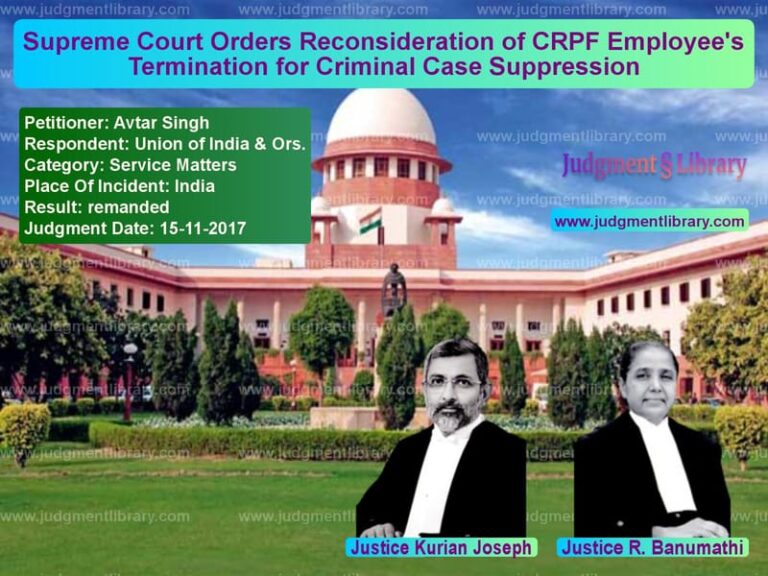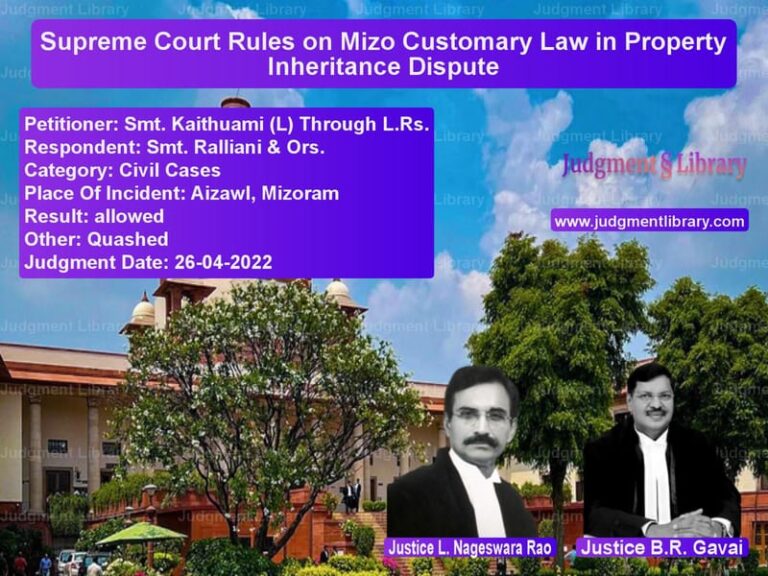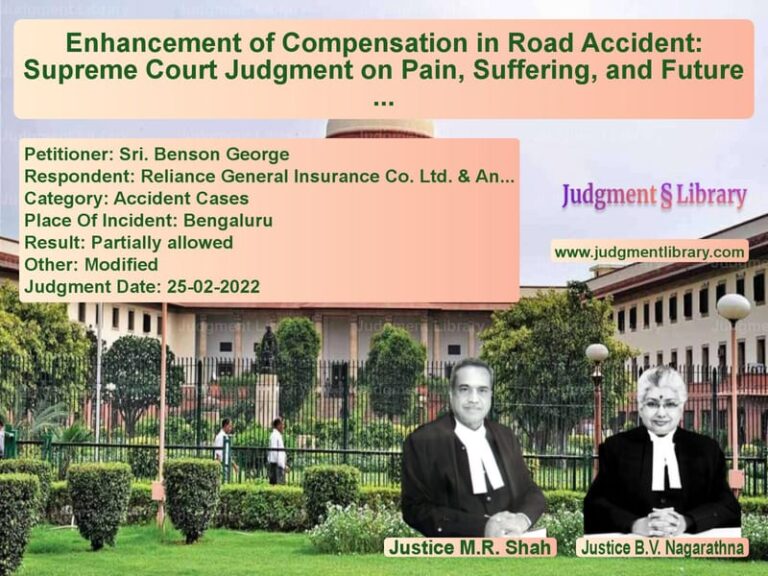Supreme Court Remands ONGC Contract Labour Case for Fresh Consideration
The Supreme Court recently ruled on a significant case concerning contract labour in the Oil and Natural Gas Corporation (ONGC), impacting thousands of workers. The case, ONGC Labour Union v. ONGC Dehradun & Others, revolved around the validity of a 1994 government notification prohibiting the employment of contract labour in various ONGC establishments.
Background of the Case
In 1994, the Central Government issued a notification under Section 10(1) of the Contract Labour (Regulation and Abolition) Act, 1970 (CLRA Act), prohibiting the employment of contract labour in 13 job categories across ONGC. The decision was based on recommendations from a Sub-Committee that conducted a study on contract labour conditions at ONGC installations. However, ONGC challenged this notification in the Uttarakhand High Court in 2013, arguing that the ban was imposed without considering establishment-specific factors.
The High Court ruled in ONGC’s favour and quashed the 1994 notification, prompting the ONGC Labour Union to appeal to the Supreme Court. The Union argued that it had not been given an opportunity to present its case before the High Court.
Arguments by the Petitioner (ONGC Labour Union)
- The Labour Union argued that contract workers would be severely impacted by the High Court’s ruling, but they were not made a party to the proceedings.
- The 1994 notification was issued after an extensive study conducted by a Sub-Committee of the Central Advisory Contract Labour Board.
- The study had examined ONGC installations in multiple states, held discussions with stakeholders, and recommended prohibiting contract labour in 11 out of 26 job categories.
- The Union contended that ONGC itself had initially agreed to comply with the prohibition but later challenged it in court.
- It was argued that the Uttarakhand High Court’s decision was based on an incomplete record, as ONGC did not present the full report of the Sub-Committee.
Arguments by the Respondent (ONGC)
- ONGC contended that the prohibition was issued without a proper establishment-specific study, which is a legal requirement under Section 10(2) of the CLRA Act.
- The corporation argued that a blanket prohibition across all ONGC installations violated legal principles since contract labour regulations must be based on specific conditions in each establishment.
- ONGC pointed out that the notification was issued under pressure due to a directive from the Bombay High Court, without a comprehensive assessment.
- They emphasized that the Supreme Court, in its ruling in Steel Authority of India Ltd. (SAIL) v. National Union Waterfront Workers, had struck down a similar 1976 notification, and the same principles should apply to the 1994 ONGC notification.
Supreme Court’s Observations and Judgment
The Supreme Court, comprising Justices R. Banumathi, A.S. Bopanna, and Hrishikesh Roy, ruled in favor of the ONGC Labour Union’s plea for fresh consideration. The key observations made by the Court include:
- “The prohibition notification undoubtedly impacts the life and livelihood of contract labourers, but unfortunately, neither the ONGC Labour Union nor other recognized Labour Unions were represented or heard in the High Court.”
- The High Court’s decision was primarily based on the SAIL judgment, which pertained to a 1976 notification and did not necessarily apply to the 1994 ONGC notification.
- Important reports and studies, including the findings of the Sub-Committee that led to the notification, were not presented before the High Court.
- The Supreme Court found that ONGC had not consulted the Labour Advisory Board before challenging the notification.
- The Court ruled that the matter should be sent back to the Uttarakhand High Court for reconsideration, with all affected Labour Unions being made parties.
The Supreme Court remanded the case and ordered ONGC to serve notice to all relevant Labour Unions, including the ONGC Contractual Worker Union, ONGC Contract Employee Union, and other major unions representing contract workers.
Key Takeaways from the Judgment
- Contract labour regulations must be assessed on an establishment-specific basis before imposing prohibitions.
- Labour Unions must be included in legal proceedings that impact the rights of contract workers.
- Any challenge to a government notification under the CLRA Act must consider all stakeholder inputs, including worker representatives.
- The Supreme Court’s decision ensures that ONGC contract workers will have a fair opportunity to present their case.
Final Verdict
The Supreme Court’s ruling is a significant victory for contract workers in ONGC, as it reopens the case for fresh consideration. By ensuring that Labour Unions are included in the proceedings, the Court has reaffirmed the importance of due process and worker representation in contract labour disputes.
The Uttarakhand High Court has been directed to decide the matter expeditiously, within four months of serving notices to the Labour Unions. This decision is expected to have broader implications for contract labour regulations across India, reinforcing the necessity of inclusive decision-making processes when determining employment conditions in major industries.
Petitioner Name: ONGC Labour Union.Respondent Name: ONGC Dehradun & Others.Judgment By: Justice R. Banumathi, Justice A.S. Bopanna, Justice Hrishikesh Roy.Place Of Incident: Dehradun.Judgment Date: 17-10-2019.
Don’t miss out on the full details! Download the complete judgment in PDF format below and gain valuable insights instantly!
Download Judgment: ONGC Labour Union vs ONGC Dehradun & Othe Supreme Court of India Judgment Dated 17-10-2019.pdf
Direct Downlaod Judgment: Direct downlaod this Judgment
See all petitions in Employment Disputes
See all petitions in Public Sector Employees
See all petitions in Disciplinary Proceedings
See all petitions in Judgment by R. Banumathi
See all petitions in Judgment by A. S. Bopanna
See all petitions in Judgment by Hrishikesh Roy
See all petitions in Remanded
See all petitions in Remanded
See all petitions in supreme court of India judgments October 2019
See all petitions in 2019 judgments
See all posts in Service Matters Category
See all allowed petitions in Service Matters Category
See all Dismissed petitions in Service Matters Category
See all partially allowed petitions in Service Matters Category







